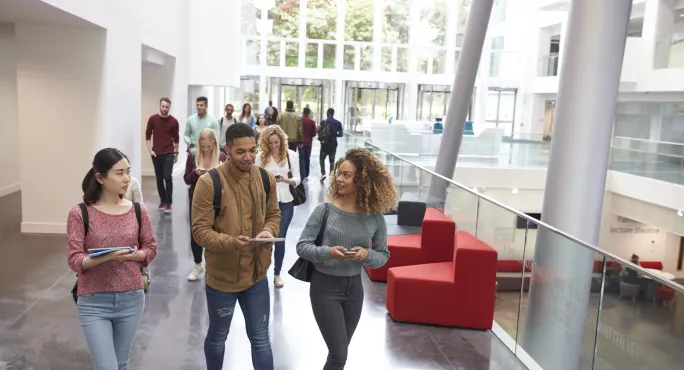Although I felt ready for a holiday, I have found it hard to switch off this summer. And especially after this week’s GCSE results, September is on my mind. Aside from not knowing what teaching will really look like, what would have been a six-week break from maths for my adult learners will be considerably longer.
For those who chose not to participate in online learning, the break might be six months. In that time, life may not have been easy. The loss of coming to college in itself will be significant for some learners, combined with the additional stress caused by the results process this year.
So, how can we prepare, and help our students to prepare?
GCSE results day: Teachers share their hopes and fears
Back to college: 3 hopes for blended learning
Opinion: How to tackle maths anxiety among students
Review online platforms
However uncertain we might be about the specifics of teaching in 2020-21, we do know that there will be increased online learning. We must look at how our students accessed this during lockdown. Many of my learners were keen to send me photos of their work for feedback. Was this because they lacked the equipment to download and return a file? Or because they lacked the skill to do it?
For the former, we are providing access to laptops and for all students, we are embedding IT into the first few weeks of term. We need to review our online platform and subscriptions to make sure they are the best we can offer students as these will be an increasing part of our provision. While technology has incredible potential to make learning more accessible, it is incumbent on us to make sure that no students are alienated by it.
Summer maths
We know that some students will be going for weeks/months without doing any maths. Now it is the summer holidays and possibly not everybody’s idea of fun in the sun is maths. But we need to make sure that anybody who does want to keep going knows how they can do that.
Here, the Padlet product has been our friend. We have sent existing and prospective students a Padlet full of links to websites and games they can access on any device, without passwords, that will definitely improve their maths if they give them a go regularly. The emphasis is fun and family friendly. You can’t make a horse drink, but you can show them where the water is.
For students with more time on their hands, we are running online “Get ready for” courses on our virtual learning environment. Prospective GCSE students are strongly encouraged to sign up but it is self-study at their own pace. Hopefully, nobody feels pressurised and students get a taster of being more responsible for managing their own learning.
Initial assessments
We need to ensure our initial assessments in September are more robust than ever. I think it is a fairly common experience to discover a lesson or two into a course that there is at least one student who isn’t quite ready for the class they are enrolled on. Maybe they just passed the previous level and then just passed the IA and suddenly the maths becomes a real challenge. These are the students who will fall between the cracks if they can’t attend college and have difficulty accessing online learning.
Now, more than ever, we need to make sure that students are in the right classes. We need to consider classes with increased guided learning hours for students who are new to blended or online learning and are finding the maths hard. We may need to offer bridging qualifications for those who need them.
Finally, we must not panic. FE is lucky enough to have a strong staff base who are often not only experienced teachers but experienced in other careers, too.
Come September, this experience will allow us to identify the issues and come up with creative and innovative ways to deal with them. If we get this right, we will emerge as a sector even more able to equip our learners for the challenges that will face them in their future.
Rebecca Atherfold is a full-time maths tutor teaching functional skills and GCSE at the Learning and Enterprise College Bexley




